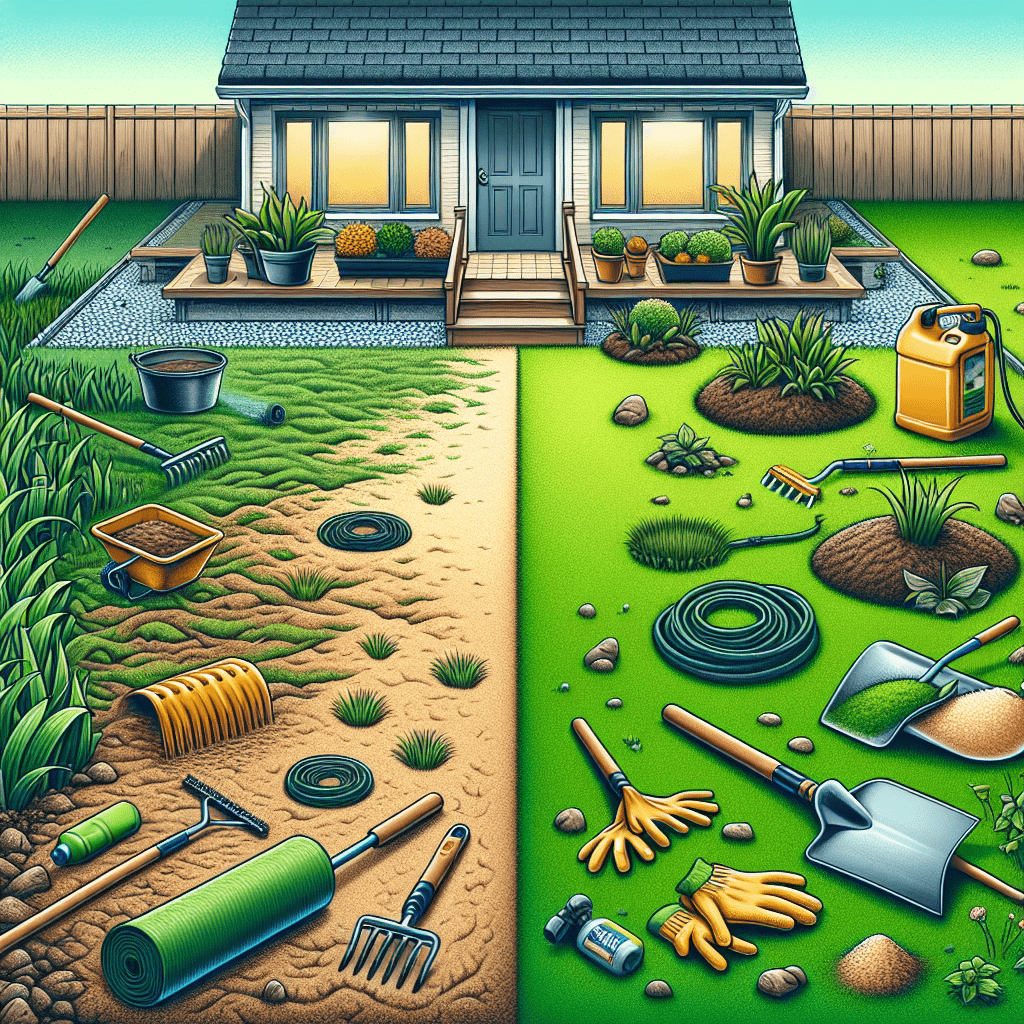Having a beautifully manicured lawn can greatly enhance the overall aesthetic of your outdoor space. Whether you have a small backyard or a sprawling landscape, investing time and effort into proper lawn care techniques can make a world of difference. In this article, we will discuss some proven lawn care techniques that can help transform your outdoor space into a lush and vibrant oasis.
Proper Mowing Techniques
One of the most important aspects of lawn care is proper mowing. It is crucial to mow your lawn regularly to maintain a healthy and vibrant appearance. Make sure to set your lawn mower blade at the appropriate height for the type of grass you have. Mowing too short can damage the grass and make it more susceptible to disease and pests. Additionally, be sure to mow in different directions each time to prevent the grass from developing a “grain” and to promote even growth.
Regular Watering
Proper watering is essential for a healthy lawn. It is important to water your lawn deeply and infrequently rather than frequently and shallowly. This encourages deep root growth and helps the grass withstand drought conditions. Water your lawn early in the morning to minimize evaporation and reduce the risk of fungal diseases. A good rule of thumb is to water your lawn for about 1 inch of water per week, including rainfall.
Fertilization
Fertilizing your lawn is another crucial step in maintaining a lush and healthy outdoor space. Choose a high-quality fertilizer that is specifically formulated for your type of grass. Be sure to follow the manufacturer’s instructions for application rates and timing. It is typically recommended to fertilize your lawn in the spring and fall when the grass is actively growing. Avoid over-fertilizing, as this can lead to nutrient runoff and environmental pollution.
Weed Control
Weeds can quickly take over a lawn if left unchecked. Regularly inspect your lawn for weeds and apply a selective herbicide to control them. It is best to spot-treat weeds as they appear rather than applying herbicides to the entire lawn. Mulching your lawn can also help suppress weed growth by blocking sunlight from reaching the soil. Be sure to use a weed-free mulch to prevent introducing new weeds to your lawn.
Aeration
Aerating your lawn is an important lawn care technique that helps improve soil compaction and promotes healthy root growth. Use a core aerator to remove small plugs of soil from your lawn. This allows air, water, and nutrients to penetrate the soil more easily, which can improve the overall health of your grass. Aerating is typically done in the spring or fall when the grass is actively growing.
Conclusion
By following these proven lawn care techniques, you can transform your outdoor space into a lush and vibrant oasis. Proper mowing, regular watering, fertilization, weed control, and aeration are all key components of a healthy and beautiful lawn. With a little time and effort, you can create a stunning outdoor space that you can enjoy for years to come.
FAQs
Q: How often should I mow my lawn?
A: It is recommended to mow your lawn once a week during the growing season. Adjust the frequency based on the growth rate of your grass and avoid removing more than one-third of the grass blade at a time.
Q: When is the best time to fertilize my lawn?
A: The best times to fertilize your lawn are in the spring and fall when the grass is actively growing. Be sure to follow the manufacturer’s instructions for proper application rates and timing.
Q: How can I prevent weeds from taking over my lawn?
A: Regularly inspect your lawn for weeds and apply a selective herbicide to control them. Spot-treat weeds as they appear and use mulch to help suppress weed growth.
TIP: Test your soil
Before implementing any lawn care techniques, it is a good idea to test your soil to determine its nutrient levels and pH balance. This will help you choose the right fertilizers and amendments for your specific lawn needs.
#Transform #Outdoor #Space #Proven #Lawn #Care #Techniques
